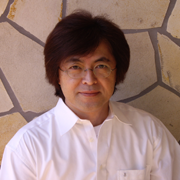Beyond Rational Reciprocity: A Moral-Sentiment-Based Game-Theoretic Model Inspired by Nobel Prize Vernon Smith's Interpretation of Adam Smith's Theory of Moral Sentiments
Author(s): Matteo Maria Cati
Traditional economic models of reciprocity characterize agents as rational, strategic, self- interested utility maximizers. In contrast, empirical findings systematically contradicts this view, revealing persistent patterns of cooperation even in anonymous, one-shot trust game [5,7]. This paper proposes a theoretical breakthrough: a game-theoretic model in which gratitude, not utility, drives reciprocal behavior. Drawing inspiration from Nobel Laureate Vernon L. Smith’s reinterpretation of Adam Smith’s Theory of Moral Sentiments (TMS) [1-3], we model trust as a moral-emotional process rooted in social norms and internalized moral sentiments. We introduce the Gratitude-Driven Trust Game (GDTG), a formal model in which gratitude operates as a probabilistic moral sentiment, triggered by perceived acts of beneficence. In contrast to strategic calculations, reciprocity emerges as a normative emotional response to good-hearted actions. Through agent-based simulations, we demonstrate that cooperation arises organically in over 76% of one-shot interactions, even in the absence of instrumental incentives or repeated play. This reframing challenges conventional prosocial utility models by directly addressing a foundational question: why do people care about the outcomes of others at all? Our findings offer new theoretical tools for economics and policy design, particularly in behavioral health economics, where fragile or morally fatigued systems demand more resilient foundations for cooperation than incentives alone can provide.


 Impact Factor: * 3.5
Impact Factor: * 3.5 Acceptance Rate: 71.36%
Acceptance Rate: 71.36%  Time to first decision: 10.4 days
Time to first decision: 10.4 days  Time from article received to acceptance: 2-3 weeks
Time from article received to acceptance: 2-3 weeks 
